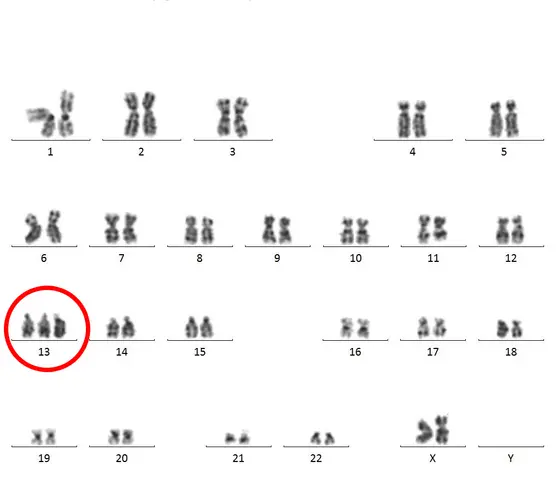Acute myeloid leukemia (AML) is a cancer of the blood-forming (hematopoietic) system in the bone marrow. AML is classified as a genetic condition because cancer cells often exhibit gene mutations that are not found in healthy cells of affected individuals. Scientists presume that these mutations substantially contribute to the onset of the malignancy.
Scientists have known for many years that specific chromosomal abnormalities in leukemia cells in cases of AML make it possible to predict the course of the disease. However, in cases of rarely occurring mutations, the prognostic relevance is still unclear. This was the case, for example, in about one percent of AML patients whose cells reveal a mutation that has given them an extra copy of chromosome 13 (trisomy 13). Studying these alterations, therefore, requires investigating a very large number of cases. A collaboration of AML study groups (AMLCG & SAL) within the German Cancer Consortium (DKTK) has now made it possible to study the genetic changes in a large number of AML patients. Partners in the collaboration included the Clinical Collaboration Group “Pathogenesis of Acute Myeloid Leukemia," which is a joint project of Helmholtz Zentrum München (HMGU) and the Department of Internal Medicine III at the Ludwig Maximilian University of Munich (LMU).
For the first time a research team headed by Dr. Tobias Herold, Dr. Philipp Greif, Prof. Karsten Spiekermann and Prof. Wolfgang Hiddemann, who is head of the clinical collaboration group and director of the Department of Internal Medicine III of LMU, has been able to show that trisomy 13 in cases of AML is associated with a very poor prognosis. “This result is based on clinical and cytogenetic data obtained from approximately 7,000 patients in the study," says Greif. “Since this mutation is so rare, we detected only about 30 cases of an extra chromosome 13.“
The researchers discovered that these cases are accompanied by a unique mutation profile. “In almost all AML patients with trisomy 13 we found additional mutations in so-called ‘spliceosome genes’," said Herold. “The splicing machinery in cells is responsible for the correct assembly of gene segments. If its functions are disrupted, this can contribute to the development of cancer."
The researchers plan to take advantage of this discovery to make the spliceosome a target in the development of new treatments. “Even though spliceosome inhibitors are still in the early stages of clinical trials," Herold says, “they might offer a new therapeutic approach for patients whose disease is caused by genetic changes in the splicing machinery."
Herold, T. et al. (2014). Isolated trisomy 13 defines a genetically homogenous AML subgroup with high frequency of mutations in spliceosome genes and poor prognosis, Blood First Edition Paper, prepublished online June 12, 2014; DOI 10.1182/blood-2013-12-540716



